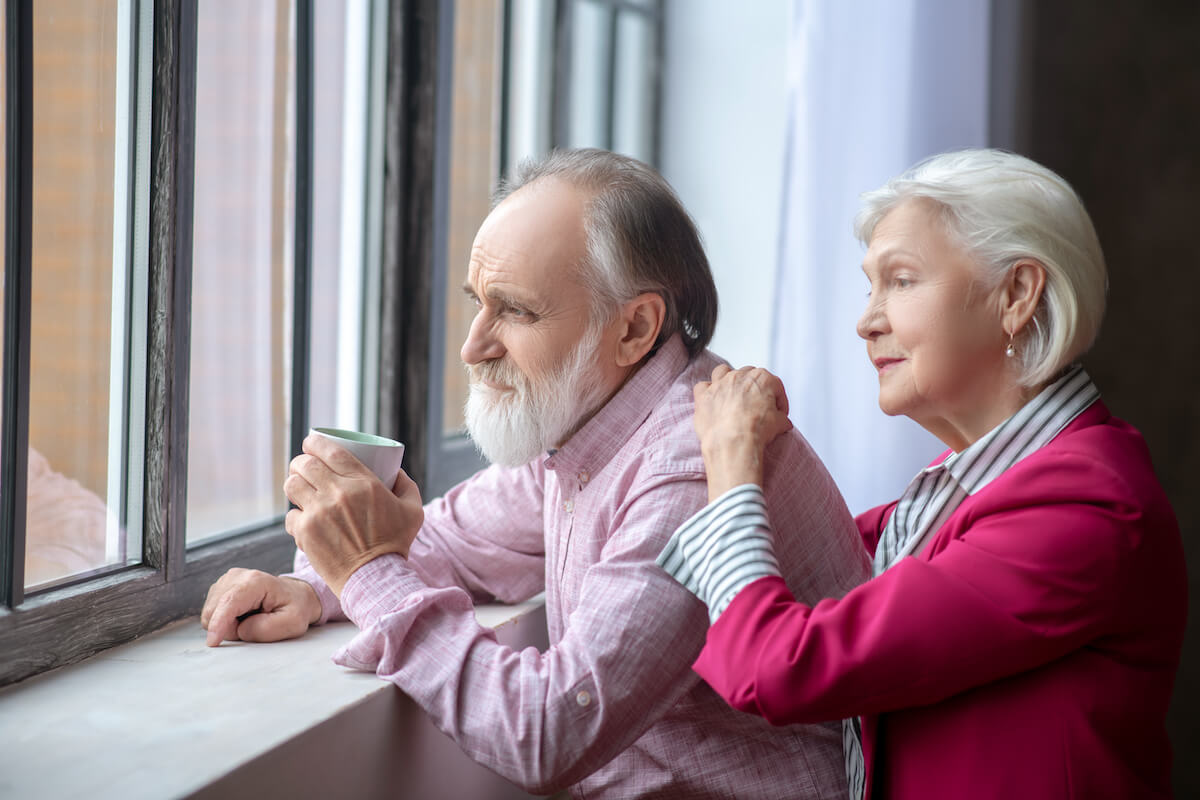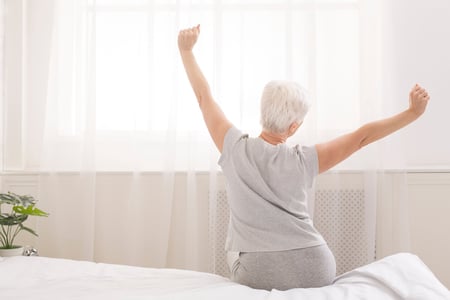
Have you ever noticed that you feel more tired, detached, and unlike yourself as soon as fall and winter come around? And then spring rolls around, and you start to feel more joyful and energetic. You’re not alone. Many people experience changes in disposition as the days get shorter, colder, and darker. For some, though, these feelings take over and interrupt their lives.
Seasonal depression can happen to anyone, but it’s especially important to understand and look for in an older loved one. Brickmont Assisted Living offers residential senior living services in Atlanta, Georgia, as well as resources and information for families. We want to help you understand what seasonal depression can look like and how best to treat and manage symptoms.
What is Seasonal Depression?
Seasonal affective disorder (also called SAD or seasonal depression) is a type of depression related to changes in the seasons. For most people who have SAD, symptoms typically start in the fall and last throughout the winter months.
It’s important to note that SAD is more than just “feeling down” or a case of the “winter blues.” It’s not uncommon to feel a little down or unlike yourself during winter—the days are dark, cold, and short, and you may be stuck inside. But seasonal depression goes beyond feeling down. It impacts your daily life, including your thoughts, feelings, actions, and relationships.
What Causes SAD?
Several factors may go into someone having seasonal depression, including:
- A Disruption in Circadian Rhythm: Reduced sunlight exposure during fall and winter can shift the body’s biological clock and lead to feelings of depression.
- Lack of Serotonin: Serotonin is a chemical that can impact mood and happiness and can be found naturally in sunlight. Again, reduced sunlight can affect serotonin levels during winter.
- Change in Melatonin Levels: Another consequence of low sun exposure is an imbalance of melatonin, the chemical that regulates sleep. A lack of melatonin can lead to people feeling extra fatigued and sluggish during winter.
Who is at Risk for SAD?
While seasonal depression can impact anyone, it is more common in individuals who already have a brain chemical imbalance, such as depression or bipolar disorder. SAD can also affect those living far from the equator, where the days are even shorter than other places.
What Are Symptoms of SAD?
Many people may experience the symptoms of seasonal depression during the winter, but for some, these symptoms are all-consuming, interfere with daily life, and occur in consecutive years. Symptoms may include:
- Feeling sad or depressed
- Losing interest in activities you once enjoyed
- Having extreme fatigue and lack of energy
- Changes in sleep patterns (for winter seasonal depression, this usually means sleeping more; for summer, sleeping less)
- Experiencing changes in appetite or weight gain
- Withdrawing from family, friends, or work
Treating Seasonal Depression
Since seasonal affective disorder is a type of depression, it’s best to speak with a doctor if you notice unmistakable and disrupting symptoms in an older family member. A healthcare professional will be able to determine the best treatment plan and course of action. Often, this treatment may include medication, but sometimes they will suggest other therapies, including:
- Light Therapy: Light therapy, also called phototherapy, is a standard treatment for seasonal depression that is done by using a light therapy box. These small boxes mimic natural sunlight without emitting harmful UV light and have been shown to reduce the symptoms of SAD.
- Get Outside: Since one of the causes of SAD is low exposure to sunlight, it’s essential to take advantage of the sunlight that is out during the day. Bundle up and go on a lunchtime walk with your loved one to get some fresh air and sunlight, as well as some exercise! You can also slightly rearrange their home to maximize sun exposure (open the curtains, move furniture, add a chair by the windows).
- Keep Moving: Feeling tired, withdrawn, and sad can make anyone want to lie under the covers all day long—especially when it’s cold or snowy outside. But exercising is one of the best things we can do for our health and can significantly reduce symptoms of seasonal depression. Some easy and safe exercises that can be done indoors are yoga, Tai Chi, or simple balance and strength exercises.
Living Well Despite Seasonal Depression
Unfortunately, those prone to seasonal affective disorder can (and usually do) get symptoms every year. The good news, though, is that with the proper management, there are ways to reduce symptoms. By seeing a healthcare professional, connecting with others, spending time in the sun, and staying physically active, you can manage seasonal depression and help your loved one feel their best.
Brickmont Assisted Living is dedicated to promoting the health, safety, and overall well-being of older adults in Atlanta, Georgia. For more information and resources on senior health and wellness, we invite you to visit the Brickmont Blog or resource library.




.png)